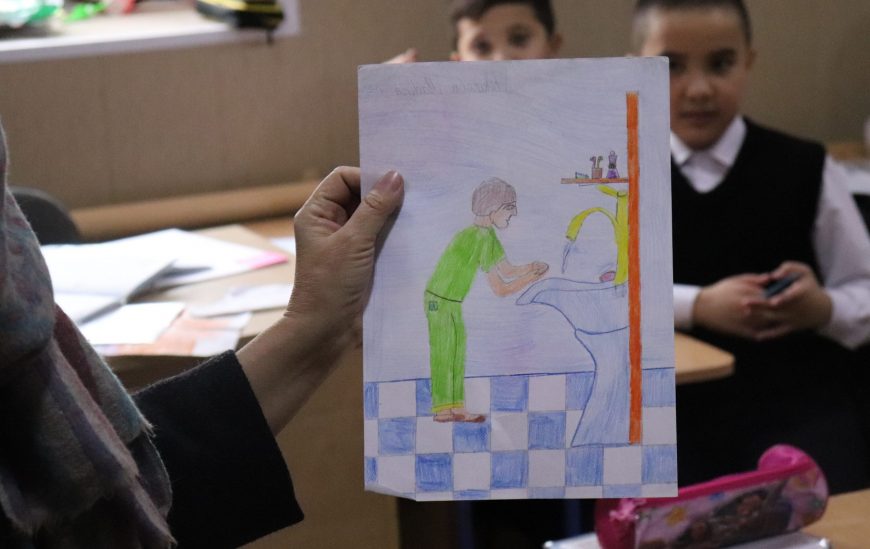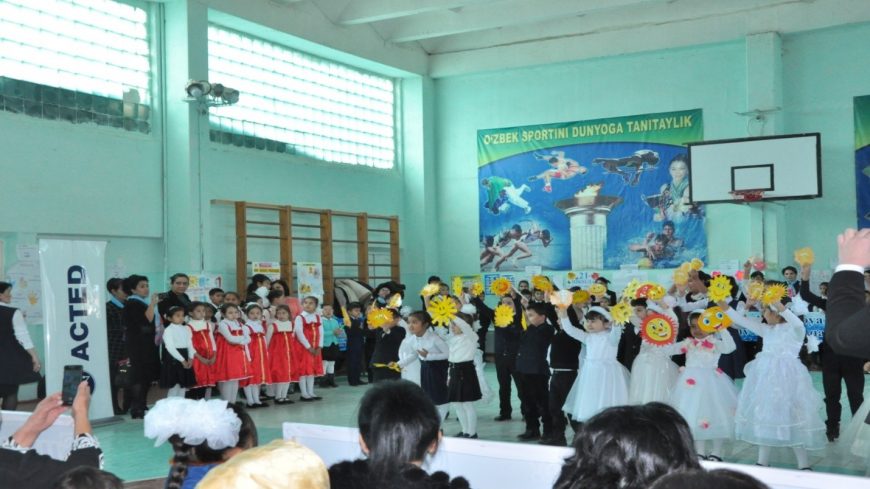ACTED's Education for Health programme improves hygiene and access to drinking water in rural Uzbek schools, where children often drink unsafe water directly from irrigation and drainage canals.

Lack of access to clean water
The coldness of a December morning does not stop children of the Zangiota district from running and playing in the wet and leafy field just ahead of the primary school building. Zangiota district, located in rural areas about 40 kilometres from Tashkent, the capital of Uzbekistan is an ideal environment for students, with plenty of open space in nature for children to enjoy. However, despite the peaceful atmosphere, primary schools have been facing challenges to access clean water and sanitation facilities for many years.
Entering one of the schools, the first thing one may notice is the presence of a mobile handwashing facility.
We used to take water with a bucket from the nearby canal. This water was good in the past but it is now polluted.
“Since September, we had four cases of Hepatitis A in our school, but we do not know whether they drank water at school or at their home since many houses also lack access to clean drinking water,” one teacher states.
The causes for this water shortage vary but are mostly due to dysfunctional or nonexistent water provision infrastructures.
Acting to create behavioral change
Thanks to the support of the Australian Embassy in Moscow, ACTED strengthened the capacity of 44 rural teachers to integrate information about water-borne and infectious diseases into their health education programs.
“When I was asked to participate in this training, I was not aware what it would be about,” points out one of the teachers who benefited from the training. “Thanks to this training I have found out that many diseases can be transmitted, for example, by not washing hands properly.”
She continues, “After this training, I became demanding to wash hands not only to my pupils but also to my children at home.”
ACTED also conducted a health education campaign targeting all primary school classes in Zangiota district, sharing key messages with children and their parents on the importance of clean water and hygiene in the prevention of infectious diseases. This campaign ended with a drawing competition on the theme “Water, soap, cleanliness are our best friends.”
“The campaign was very effective and successful. I noticed kids washing their hands after going to the toilet,” one teacher firmly says.
From theory to practice: Constructing and rehabilitating water supply systems
After promoting health education, ACTED worked to ensure access to clean and safe water in three schools of the district. Teams rehabilitated and installed pipes, taps and washing facilities in the canteens, next to the toilets and in the school infirmaries.
“Children, teachers and parents were very excited and looking forward to the completion of the works,” says a smiling teacher of one targeted school.
“These schools did not have water for the last 20 years,” added the Head of Zangiota District Department of Public Education. “This project was necessary. Thanks to ACTED and the Australian government, who have made it possible to rehabilitate the water supply systems, children and teachers of these schools now have access to safe drinking water.”


